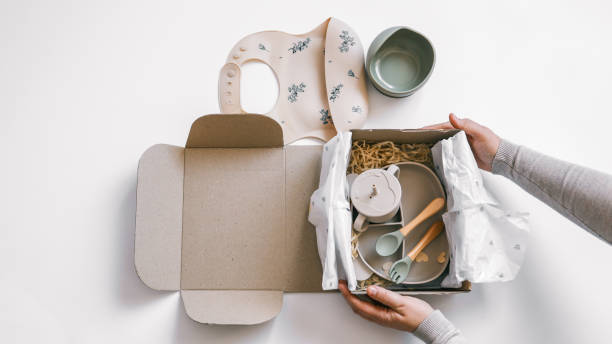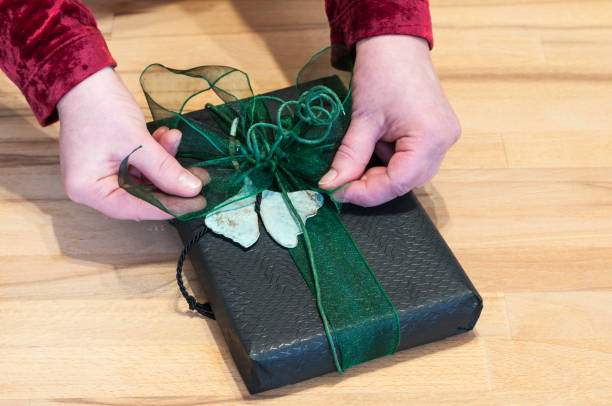Giving shows that you care. Our loved ones deserve to know how much we care for them. Every holiday and special occasion calls for us to buy presents. However, we are also expecting to receive one. But do zero waste gift ideas affect the environment any more than traditional ones?
Gifts you give your friends and family can be environmentally friendly by choosing sustainable options and environmentally friendly wrapping paper. Find out how you can give environmentally friendly gifts throughout the year and what are the best eco-friendly gift ideas.
What is Zero Waste Gifting?

In zero waste gifting, resources are minimized, natural, biodegradable, and reusable materials are used, upcycled materials were previously used and are still present somewhere on our planet, artisans are supported, all workers are paid fairly, and society is given a positive contribution.
It is possible to reduce waste and embrace an eco-friendly lifestyle with zero waste gifts. You can also use them to make a statement about your beliefs and values.
“There was a USD 15.1 billion global gift-wrapping products market.”
Millions of tons of waste are generated by gifting, half of which is disposed of in landfills. In general, coatings, glitters, foils, bows, and the like are not recyclable. It is time to cut out the notion that thoughtful gifts need to be wrapped in something shiny, and even with these numbers we have somehow accepted it.
If you want to show your company’s environmental responsibility, consider alternative gifts such as zero waste gift that reduce waste, lower our impact on the planet, and result in a minimal impact on our planet.
Reasons for Zero Waste Gifting
Our celebrations all have a cumulative impact; by making careful choices about what we eat, the gifts we give, and the way they are wrapped, we can begin to create a positive change in the world. Perfect zero waste gifting puts a smile on someone’s face without harming the environment. There are plenty of options that can help accomplish this.
Read More On: 20 Best Sustainable Gift Ideas for an Eco-Friendly Lifestyle
Zero Waste Gifting: Factors to Consider
To find an eco-friendly and zero waste gift, you need to consider the following factors: local sourcing, eco-friendly manufacturing, consumable or durable, zero waste, and reusable. Keeping these qualities in mind will help you find a gift that ticks all the boxes.
It helps to check with the gift recipient that it is something they will appreciate so that it won’t end up in a landfill. We are confident you will find something they will enjoy on this list.
Wrapping your Zero Waste Gift

Wrapping paper is not fully recyclable, despite what we are led to believe. Glitter, sequins, or other types of plastic embellished gift wrap cannot be recycled, so they end up in landfills. This is not ideal. It is best to use recyclable gift wraps.
You can also give gifts a simple yet stylish look by wrapping them in newspaper or brown paper. Due to their affordability and ease of recycling, these are also a great alternative to wrapping paper.
The Environmental Impact of Traditional Gifting

It is believed that giving gifts strengthens relationships and expresses feelings to others. Our social fabric has become ingrained with the act of giving gifts, whether it is for birthdays, holidays, anniversaries, or special occasions. However, gift packaging and wrapping practices contribute to environmental pollution.
Increasingly, consumers are opting for single-use and non-recyclable materials due to the allure of beautifully wrapped presents. In landfills and incinerators, these materials often end up adding to ever-growing mountains of waste after being used once and then discarded. They may even litter our natural landscapes and take a long time to decompose.
However, gift-giving has an impact on the environment beyond just packaging. Carbon emissions and pollution are caused by the manufacturing of many gifts. This leads to the phenomenon of “unwanted gifts,” which are gifts that recipients do not use, rather than being cherished and discarded, adding to the waste problem.
Benefits of Zero Waste Gifting

Zero waste gifting extends beyond the act of giving itself and can reduce waste, promote conscious consumption, and support local artisans. Sustainable gifting offers the following benefits:
1. Environmental preservation
Recyclable and renewable materials are often used in zero waste gifts, thereby minimizing energy consumption and waste. Choosing eco-friendly gifts helps prevent deforestation, pollution, and climate change while contributing to the preservation of the environment.
2. Waste reduction
Packaging for conventional gifts is often excessive, resulting in landfill waste. The packaging of sustainable gifts is often minimal or eco-friendly, reducing the amount of plastic waste and reducing the load on waste management systems.
3. Thoughtful and unique
Both givers and recipients benefit from zero waste gifts since they are often handcrafted and unique. It can make the gifting experience more meaningful and personal by bringing a sense of authenticity and personal touch.
4. Social impact
Because many zero waste products are crafted by artisans and small-scale producers, sustainable gifting can support local communities and marginalized groups. You can help sustain traditional craftsmanship and empower the artisans by choosing these gifts.
5. Ethical support
Fair wages are often paid to artisans and workers involved in the creation of sustainable gifts, as well as safe working conditions. You can support businesses that place a high priority on their employees’ well-being by choosing sustainable gifts.
6. Long-term benefits
It is often the case that sustainable gifts are made from materials that will last longer, allowing them to be enjoyed for a longer time. As a result, there is less need to replace parts frequently and resources are saved in the long run.
7. Leading by example
You inspire others by giving sustainable and zero waste gifts. If you give thoughtful gifts to your friends and family, they may adopt more sustainable practices themselves.
The Best Time to Give Gifts

There are many occasions where zero waste gifts are given, but these are a few of the most common:
- Birthdays: The celebration of a person’s birthday is a personal affair during which friends and family give them gifts.
- Holiday season: A great time to give gifts is during cultural or religious holidays like Christmas, Hanukkah, Eid, and Diwali.
- Anniversaries: Gifts are a great way to honor and celebrate milestones, whether they are wedding anniversaries, dating anniversaries, or work-related milestones.
- Weddings: In most cases, wedding registries help guests choose what to give to newlyweds as a gesture of goodwill.
- Baby showers: Sustainable gift ideas are ideal for parents-to-be as a sign of support and celebration before the birth of their new child.
- Graduations: Gifts are often given as a way to recognize and celebrate significant educational milestones.
- Housewarmings: Bringing a gift to congratulate someone on their new home and make it feel welcoming is common when they move into a new house.
- Appreciations: In recognition of someone’s ongoing support, or to express gratitude for their kindness, support, or help, gifts can be given.
These and other moments are perfect opportunities to show your love for your loved ones and to do so in an eco-friendly and sustainable manner.
Final Thoughts
Zero waste gifting doesn’t have to be preachy or feel like a compromise. You will already be helping the environment and reducing your carbon footprint if you keep the environment in mind when shopping at zero waste stores.
As consumers, we can contribute to the green movement by embracing more eco-friendly shopping habits such as buying local, taking reusable bags, focusing on eco-friendly products, and using recyclable or reusable packaging.
With these little changes, you can create fewer landfills, reduce carbon dioxide emissions, and strengthen local economies throughout the year – a real win-win!







